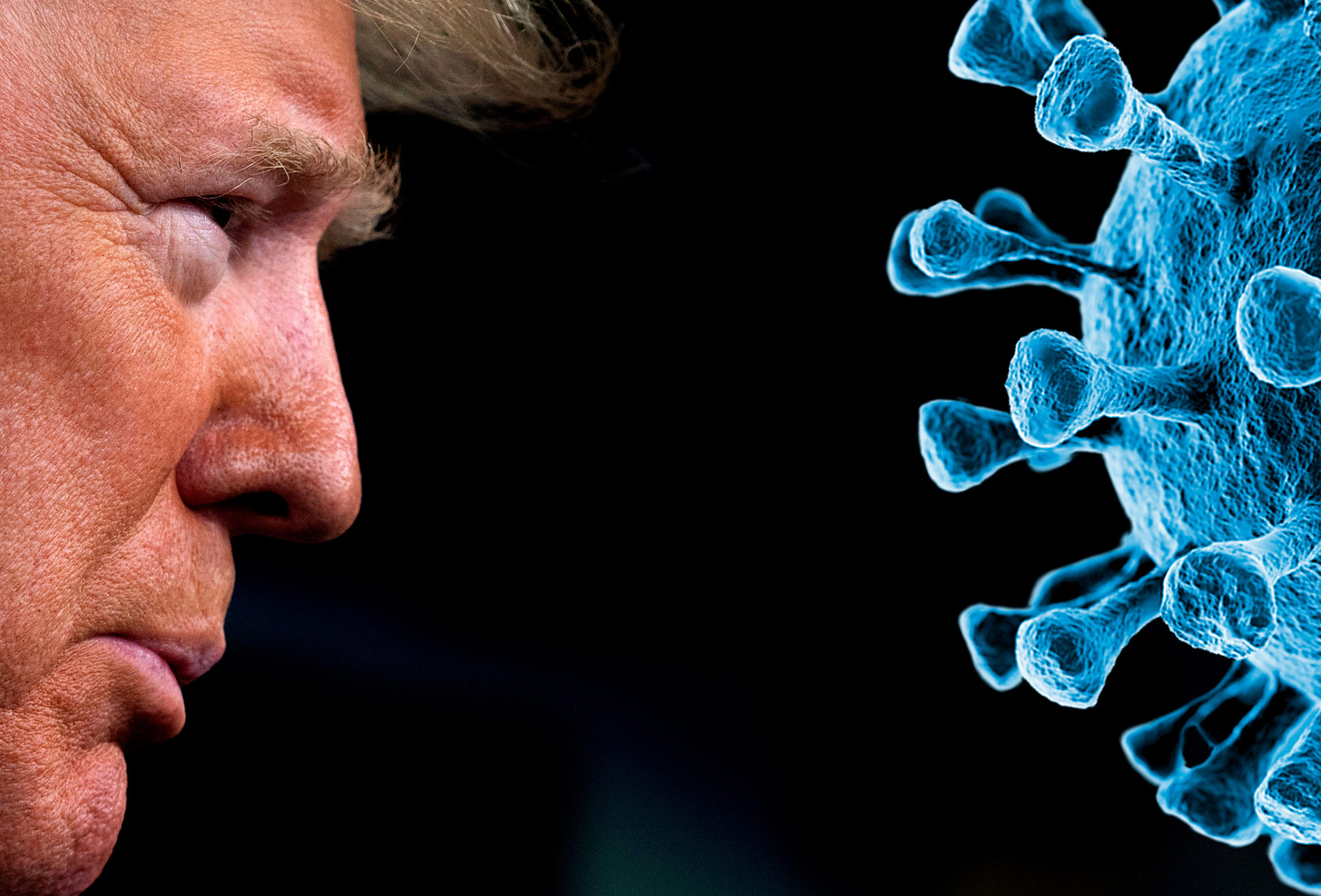Fight the Virus. Fight the Depression. And Fight Trump.
The autocratic impulse is as dangerous as a plague.

"Let us therefore have that salutary fear of the future that makes one watchful and combative, and not that sort of soft idle terror that wears hearts down and enervates them."
—Alexis de Tocqueville, Democracy in America, II 4.7
Donald Trump is not a stable genius, but he has a certain reptilian cunning. He knows when he's in trouble, and he'll lash out suddenly and ferociously, in any direction, to try to get out of it. Trump's in trouble. A pandemic to which the president has mounted an ineffectual response and a recession that could spin out of control are no basis for a successful reelection campaign. But Trump is the president. And he's not going to go gently into the good night of political defeat. Instead, Trump is already signaling what he'll do. He'll continue going along with the public health professionals a little while longer, hoping to get past the worst of the outbreak. But he'll let it be known he's increasingly concerned—indeed, has always been concerned—about the economy. He'll take advantage, in an irresponsible way, of not-unreasonable calls to think seriously about how, after the shutdown, to get people back to work. He'll ignore all the caveats about the importance of the massive testing and monitoring that would make such a course feasible, and instead become the champion of economic revival above all else. Will this cost lives? Yes. But does Trump really care? Well, if he cared about lives, then he wouldn’t have been lying to the country since the beginning of this crisis.
Will Trump risk seeming somewhat heartless if he prioritizes the economy above public health? Yes. But Trump will calculate that at some point relatively soon, more people are going to be worried about paying their rent than getting the virus or being personally affected by it. This is not a heartless calculation for many people: In the absence of rapid, effective government intervention someone who has suddenly lost his job might contract COVID-19, but definitely won’t be able to put a roof over their head, or food on the table. And at the beginning of the crisis, the numbers of those out of work (and those whose businesses are going under) will be greater than the numbers of those who are severely ill. It's not clear, as a matter of raw, cold politics, that the perceived economic well-being of millions couldn't win out over the lives of tens—or even hundreds—of thousands. Even a normal democratic leader would think for a minute about this equation and the possible ways one could take advantage of it. But then a normal democratic leader would conclude that this is a political calculation that a healthy, liberal society simply does not make. And in any case, a normal leader would understand that in the long run, the math doesn’t work—that public health and economic well-being must rise and fall together. But Trump isn't a normal democratic leader. Much more than any president we've had, he is free of the normal allegiances to democracy and decency that constrain the liberal political order. Trump has the soul of an autocrat. He has complete control of one party. And he has the unquestioning support of both Fox-watching loyalists and supine tax-cut-loving apologists. So he will do what he can get away with doing.
One would normally assume that eight months from now Trump will end up following the doomed political paths of failed presidents such as Herbert Hoover and Jimmy Carter. But they were small-d democrats. There were some lies they wouldn't tell and some things they wouldn't do in order to cling to power. Trump rejects the constraints that honorable men like Hoover and Carter respect. Democratic leaders accept the price they may have to pay for real or perceived policy failures. Do autocrats? No. And are we so confident in the strength of our democratic institutions and norms that we are sure we're not susceptible, here in America, to the autocrat’s playbook? The only way to be sure is to make sure. And that means remembering that there are not two but three major dangers to the future of the country: the virus, an economic depression—and Donald Trump.




